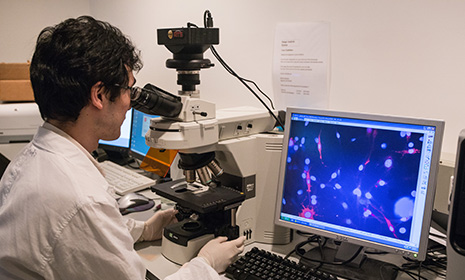Division of Kinesiology
Kinesiology is the multidisciplinary field of study covering human movement, exercise and physical activity. Members of this Division are trained and specialized in key sub-disciplines of kinesiology, including exercise physiology,cardiovascular/integrative physiology,sports nutrition, and physical activity epidemiology. This Division aims to investigate the effectsof exercise and physical activity through a wide range of studiesat a molecular, individual and population level and apply the findings toward improving human health and well-being. Our interdisciplinary projects currently focus onthe understanding of crucial physiological aspects of exercise, its measurement in different populations and lifestyles and how such factors can contribute to improving public health by1) addressing issues such as physical inactivity, obesity,aging and sex specificity, 2) elucidatingbeneficial characteristics of specific exercise prescriptions and modalities,3) revealing the beneficial impacts of physical activity and fitness on non-communicable disease andgene-environment interaction for disease outcomes, and 4)developing the assessment of physical activity through wearable devices and self-reports.
Current research emphases include:
-
The health-promoting effects and underlying mechanisms of high-intensity interval training (HIIT) and tai chi.
-
The role of exercise frequency, intensity, and type in physical activity recommendations for health.
-
Favorable impacts of increasing physical activity and fitness on prevention of non-communicable disease from an epidemiological perspective.
-
Interaction between genetic risk and physical activity for various health outcomes.
-
Effects of genetic risk communication on behavior change.
-
Improving validity and utility of various physical activity assessment tools including wearables and self-reports.
-
Role of modifiable phenotypic variablessuch as blood volume and circulating hemoglobin in cardiorespiratory fitness.
-
Interplay of cardiovascular and hematological systems to determine maximal cardiac output and aerobic capacity in health and disease.
-
Genetic contribution to the impact of exercise training and detraining on clinicallyrelevant variables.








.png)
